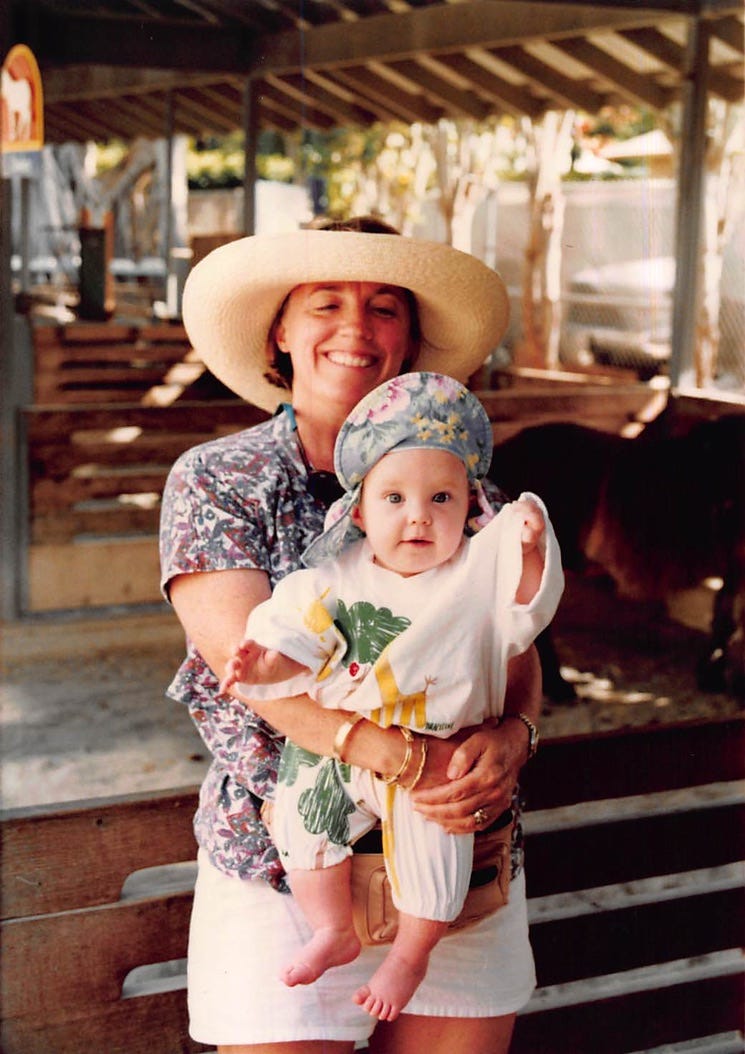Meet Mar from LESS
My mom died, ten years ago. I don’t remember our last conversation. It wasn’t about her dying because we (regrettably) didn’t talk about death. And it wasn’t goodbye because she was in a coma by the time I returned home. Her melanoma had metastasized through her body, leaving a bumpy trail of lymph nodes. Cancer’s language for “time is running out.” We did exchange one last mother-daughter closeness: my body beside her side, my arm around her waist, my chin on her shoulder, my breath on her cheek.
Her name was Marita, some called her Mars. There is no coincidence in our names’ likeness. Mar comes from my great aunt, Marcela; the -ita from my grandmother, Anita. One part of my name belongs to her. Both parts of her name belong to women she loved and lost. For us, names are a legacy of love, grief, tradition, and shoes to fill. I am part the girl she left behind, part the women I inherited, part the woman I remember.
I’ve found that grieving her is like childhood vegetables. It’s always the last thing touched on my plate (and likely to be thrown out in a napkin). The feelings are difficult to stomach. The permanence is even harder to swallow. I miss her. I miss her warmth, her brilliance, and I miss having a mother: a woman to revere and occasionally, as daughters are wont to do, to rebuke.
I think of her more and more in stories. Mom, in all her toothy smiles, fiery temper, happy tears, and tender hopes, reduces to the parts my memory and emotions can manage. Joan Didion, patron saint of bibliophilic grievers, wrote: “We tell ourselves stories in order to live.” We also tell stories to let the dead depart, introducing past tense and punctuation to the stories most difficult to free.
What’s made me less has made me more my mother’s kind of woman: tender, tough, tenacious, and more of my own: curious, small-talk-avoidant, empathetic.
I hope this space shows one way through grief. I hope it encourages you to tell your story.


